
The Ducks Unlimited Canada Acadia University Campus Club and the K.C. Irving Environmental Science Centre recently hosted a unique and educational seabird dissection event, offering undergraduate students the opportunity to engage in hands-on learning. Led by Mark Maddox, Ruby Schweighardt, and Asha Grewal, graduate students in Dr. Mark Mallory’s lab, the event provided valuable skill-sharing and practical experience for attendees.
A total of 30 undergraduate students participated in the dissection of 30 murres. Murres are hunted as a food source in Nunavut and Newfoundland and Labrador. Murres are important cultural food for Inuit, First Nations, and Newfoundland and Labrador residents.
The specimens, obtained with the cooperation of Environment and Climate Change Canada (ECCC), contribute to conservation and ecological research. Murre dissections generate data contributing to a range of studies at Acadia and ECCC, including investigations into seabird diet, plastic ingestion, disease monitoring, and isotope research. Collection of this data, and the subsequent student opportunities, is supported by Wildlife Habitat Canada’s Murre Fund, part of the funded projects through the Canadian Wildlife Habitat Conservation Stamp Program.
The demand for these hands-on opportunities is high, students were excited and the spaces filled hours following registration launch. Mark says “I’ve really enjoyed contributing to student learning through these dissection workshops over the last two years. I believe these laboratory skills allow students to become more employable following their graduation. It also gives individuals a chance to learn and engage in Murre conservation and research, who would have otherwise not known about these species. I take great pride in connecting student learning and research with projects supported by hunting communities for the benefit of conservation, a shared objective with Ducks Unlimited Canada.”
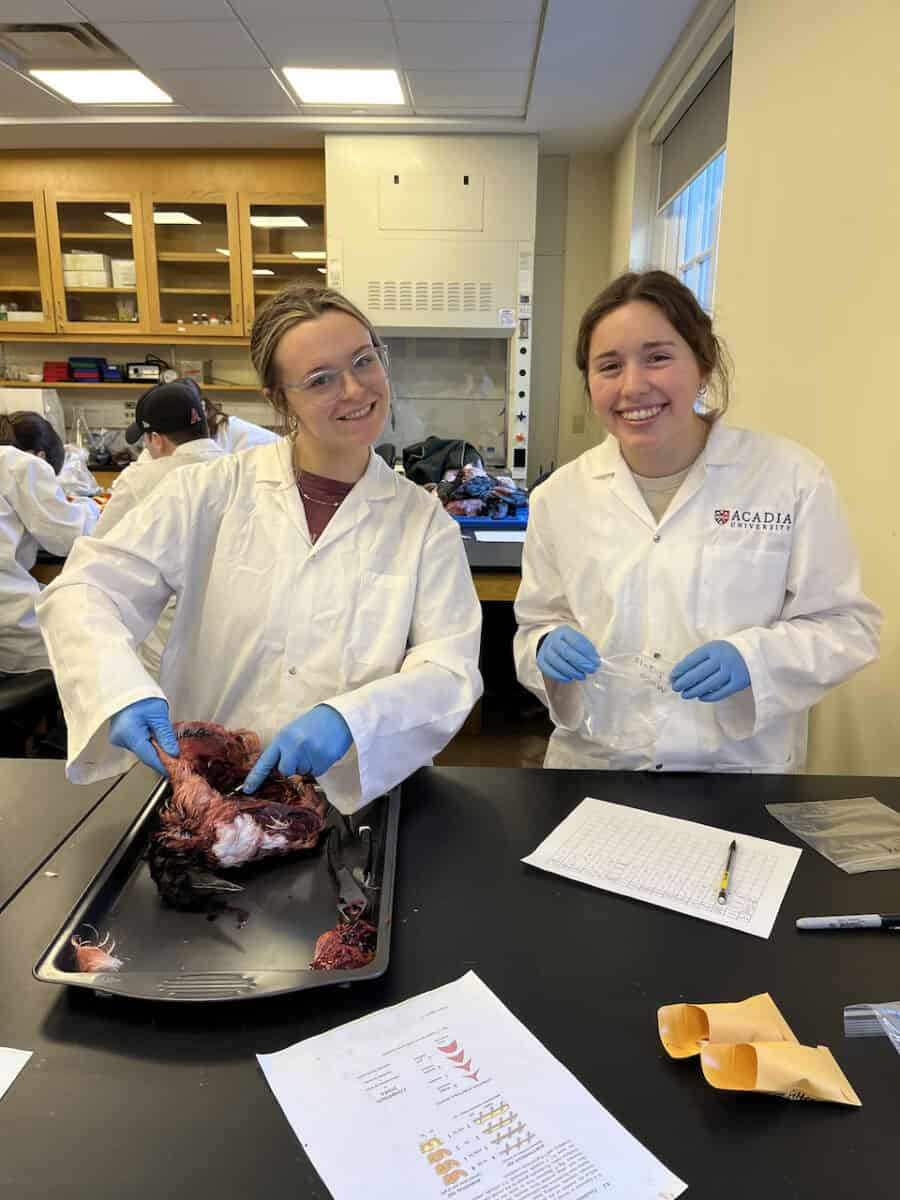
Eve Pole, third year Environmental Science major says, “I love doing this immersive and hands-on workshop every time it is offered! Knowing you’re supporting research while learning valuable laboratory skills makes the experience very rewarding. Seeing everyone come out to events like this makes me proud to be a part of the DUCS Acadia Campus Club team”.
The Ducks Unlimited Canada Acadia University Campus Club is a student-led club at Acadia. Their mission is to educate, conserve and ignite curiosity and care for wetlands, wildlife and biodiversity, while facilitating experiential learning opportunities for students and the community. Opportunities for Acadia students are posted on their Instagram page @duc_acadia.
Eve Pole (left) and Kirsten Gallant (right) working on a dissection.
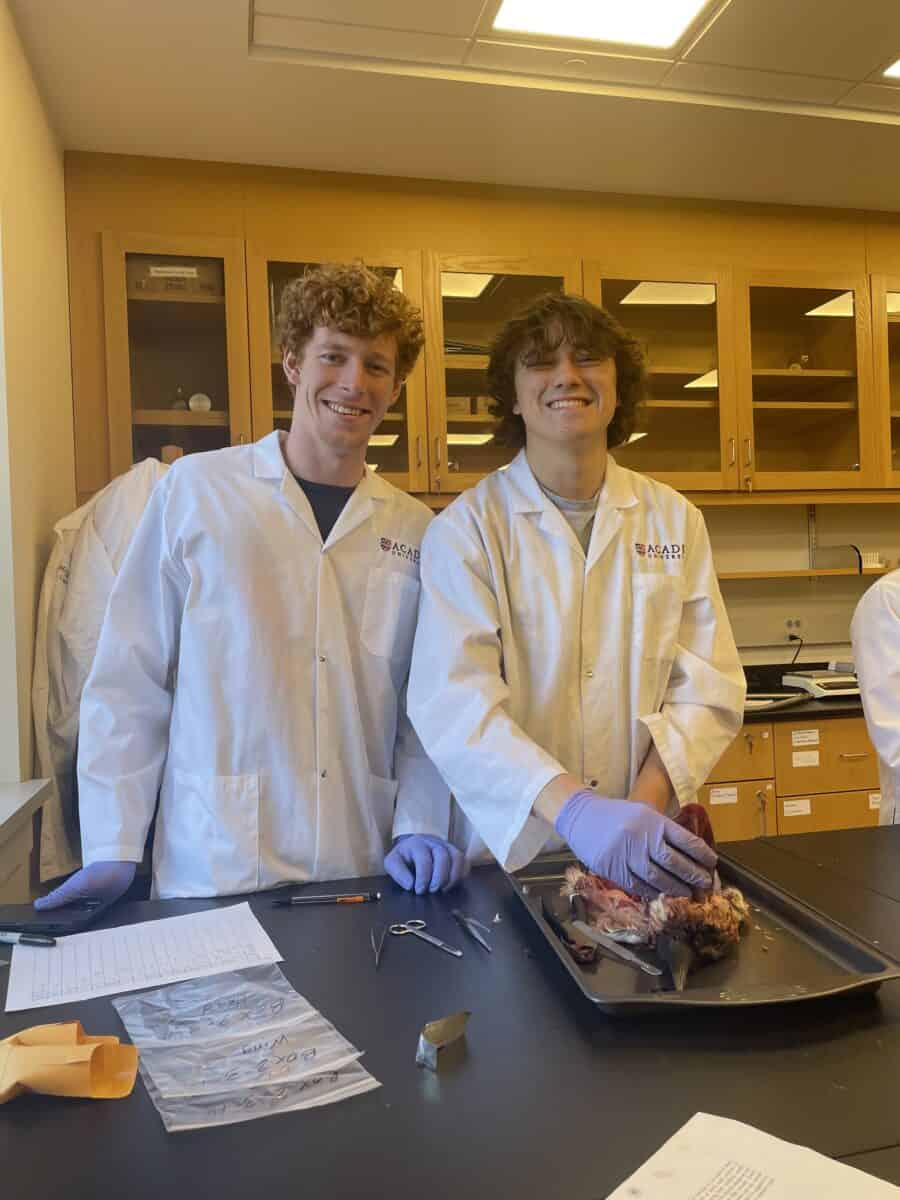
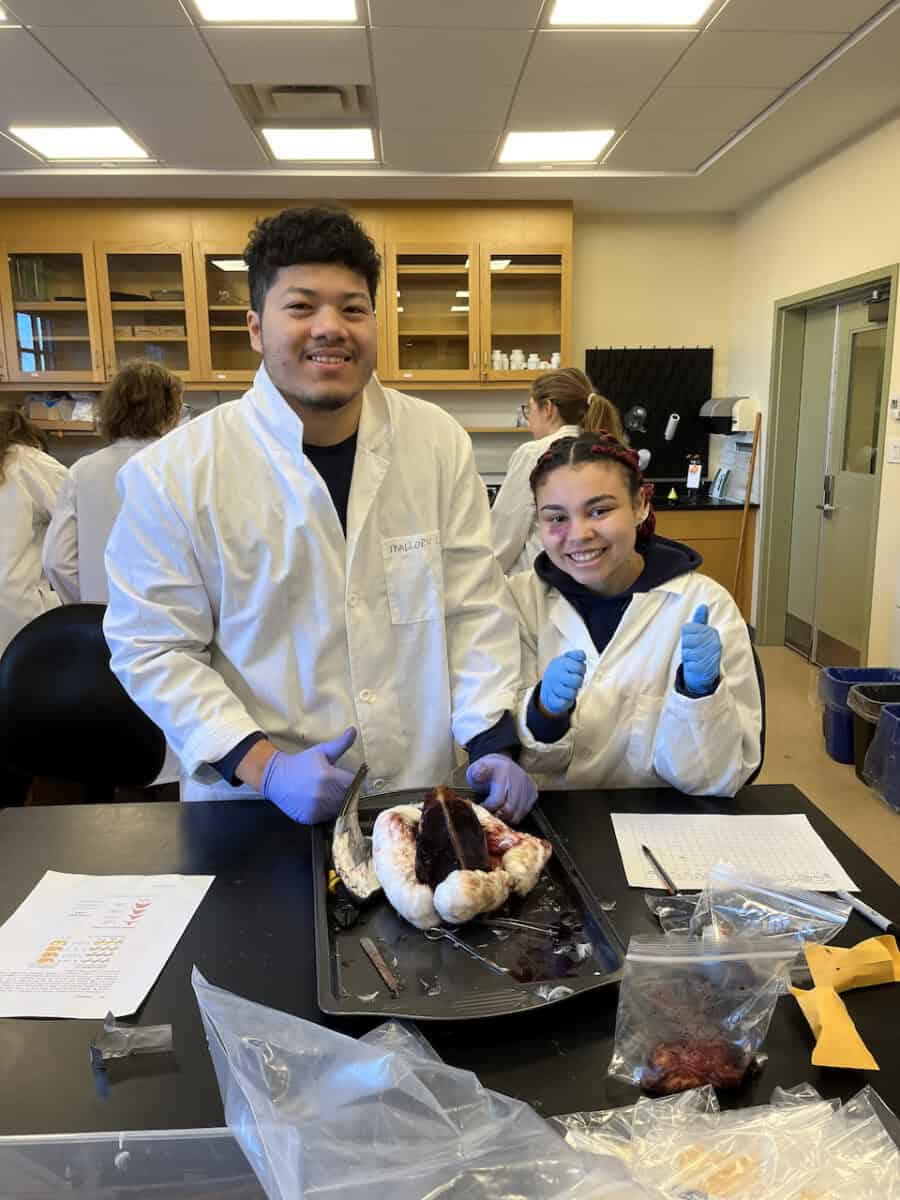
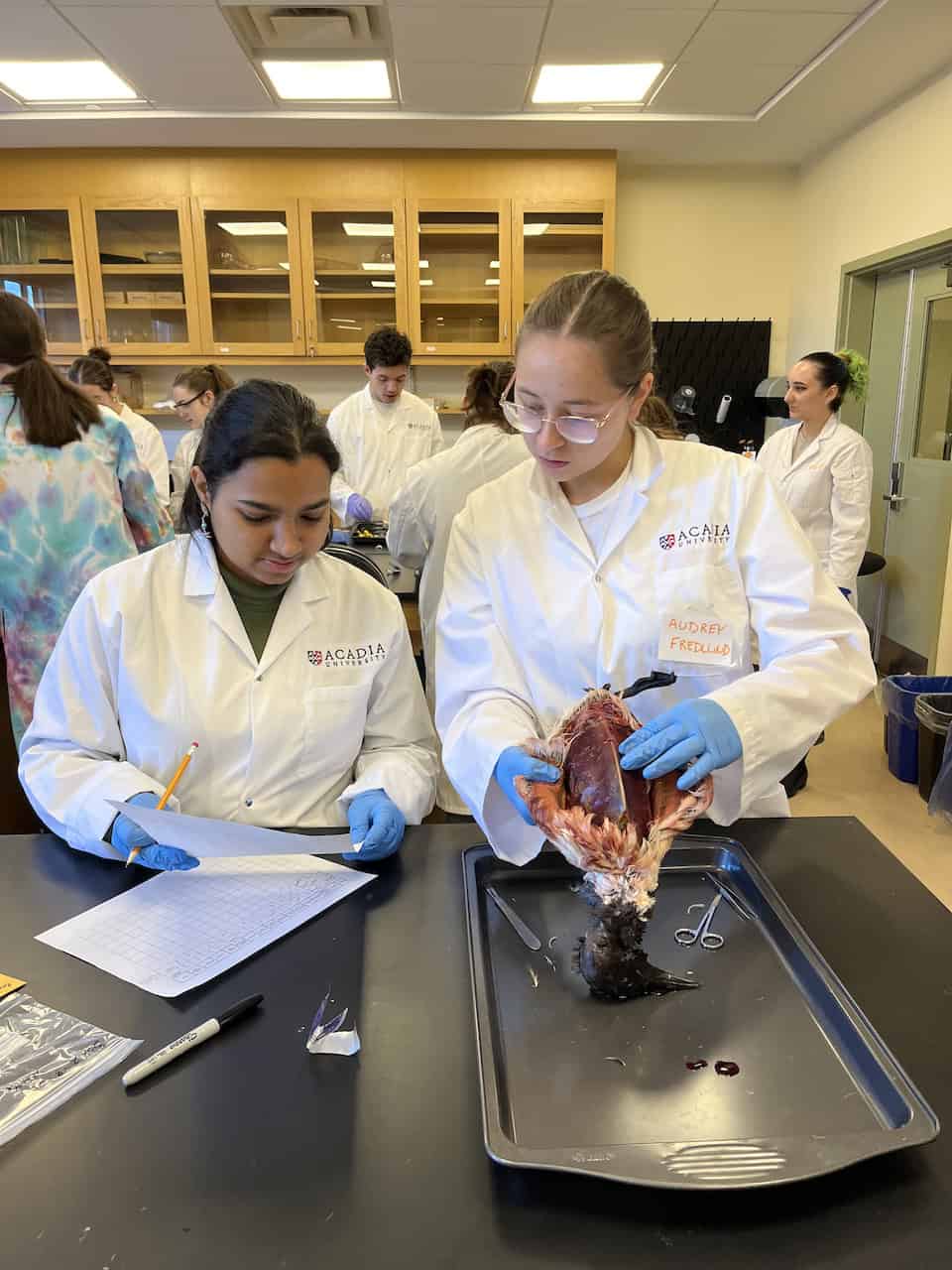
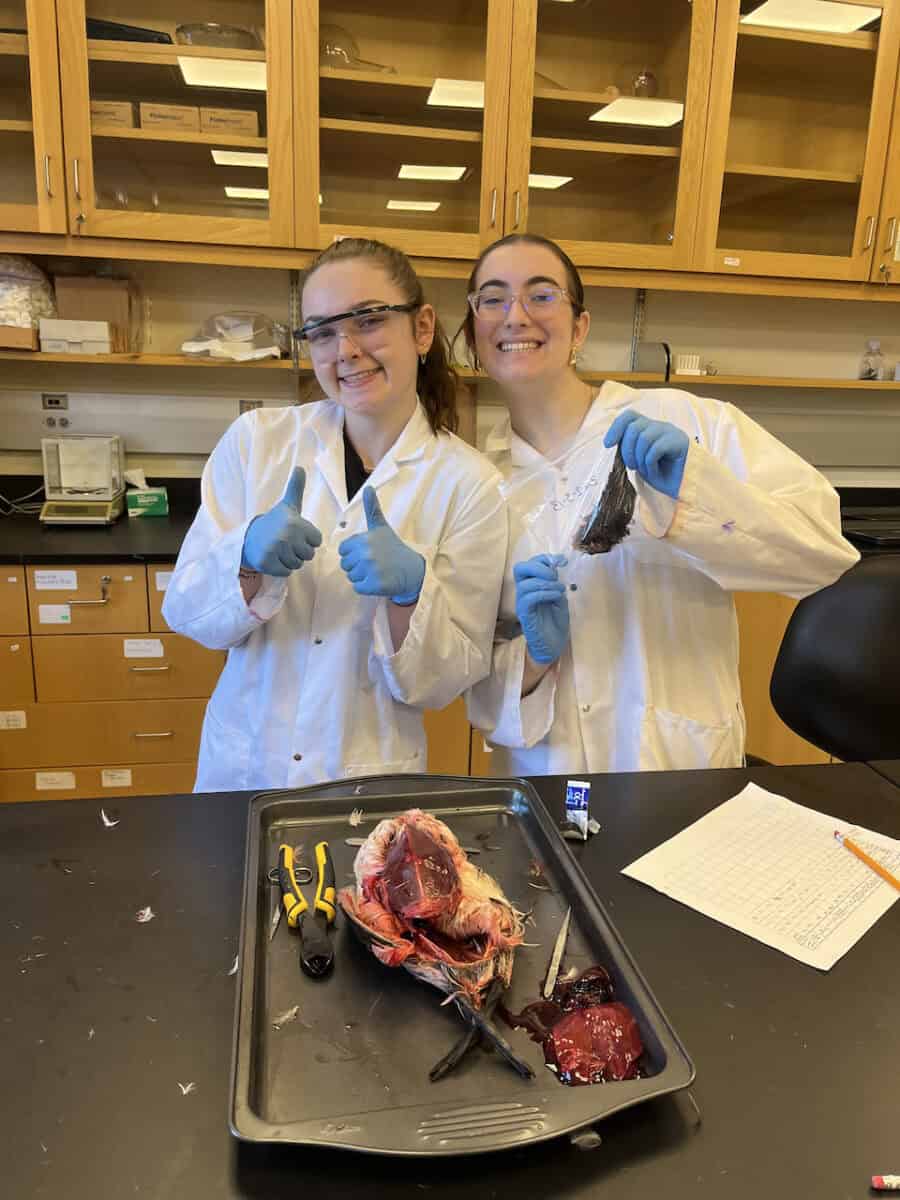


 Acadia University
Acadia University